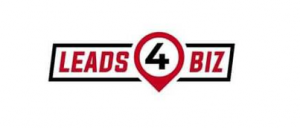
Which Business bank ? (Survey)
The banking industry is not the most cherished profession at the moment, with top financiers in London making huge losses and still walking away with enough bonus for a nice house and a boat,. and if the banking strategies of late are anything to go by, you might be buying a larger mattress to hide all the lovely money your company is going to make.
However a business bank account is something you are going to have to grin and bear with, the days when everyone knew their Bank manager and he knew your business really well are gone, the best we can hope for is the off the shelf packages they provide, and the computer telling us whether we can have a short term overdraft or not, so we searched for the best tips we could to help you along:
Due diligence
First off you must look around, don’t just choose the bank you have been with since you were a spotty teenager, look around there are different deals which can make a massive difference and can compliment the way your business works.
If your company is a Limited Company, then it is a separate legal entity to that of its directors and shareholders, and it will need its own bank account. Setting up a bank account is a relatively straightforward affair, having said that there are a number of choices that may affect your decision as to who you sign up with ,and there is certainly no shortage of deals out there to addle you more!
Sole traders have a choice of more or less the same banks as limited companiesi, t’s just the Business set up is slightly different.
Where do I start ?
For many new company directors the first point of contact is their own bank, this may be the most convenient and quickest option as the bank is likely to be able to validate the identity of the director based on their existing records. If your company has multiple directors that bank elsewhere then this isn’t going to be an advantage. Business Link still offer a good comparison between the High Street Banks.
What do I need to look out for ?
Many of the bigger high street banks are offer a free banking period of anything up to 18 months, which means you will not be charged for any regular banking procedures such as using your debit card, transferring money, setting up direct debits and standing orders, and withdrawing cash. However it is important to look at the standard charges and decide if the rates are compatible with your business. To do this you need to look at the type, size and frequency of the transactions you may make, and compare this with the charges imposed by the bank. It is really a case of finding the balance.
What will I need to set-up a Bank Account ?
Banks must comply with stringent money laundering laws and before opening the new account they will ask for all your company documents. Most banks want to see an original copy of your certificate of incorporation (printed on the correct paper), a copy of your memorandum and articles and any share certificates that have been issued. You may also be required to show your passport and or proof of Business address to confirm your identity.
How long does it take ?
Depending on the number of checks that the bank carries out to confirm the identity of the directors, secretary and the company itself, it can take anything between 1-4 weeks to open a new company bank account. To make the process as quick and simple as possible I would recommend that you confirm over the telephone what documentation is required so you can have this at hand when you first meet the business manager. They may ask to see you with the other Directors and Secretary in person.
Please take part in our survey to find out what others feel about what is offered by the High Street Banks for business, and what you feel about your Business Bank and their services. It’s only 5 questions, takes 30 seconds, and the results may surprise you!
If the survey does not show go here SURVEY
Create your free online surveys with SurveyMonkey, the world’s leading questionnaire tool.


